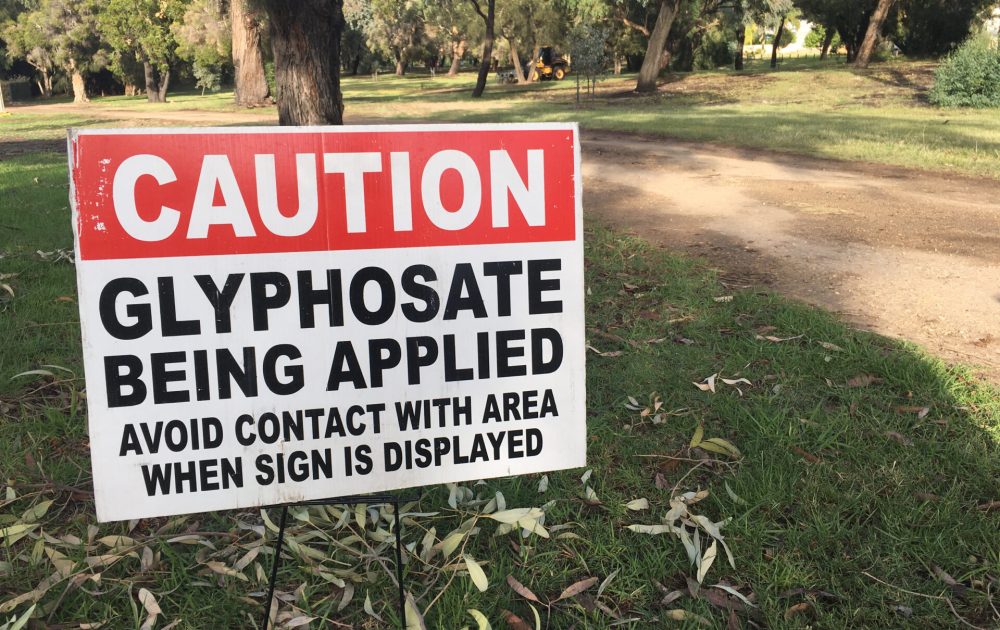Our test tells you which everyday chemicals you've recently come into contact with, and easy steps you can follow to reduce your exposure to them.
Glyphosate links with cancer

Glyphosate has been at the centre hundreds of legal cases in the US brought against manufacturers by employees experiencing ill health because of occupational exposure. Last week a settlement of $2.25bn was made to John McKivision in a domestic case. He successfully claimed against Bayer for causing his non-Hodgkins lymphoma, stating it was the result of exposure to Roundup he sprayed outside his house for many years. Bayer are the manufacturers of Roundup, which is the world’s mostly widely used herbicide, where glyphosate is the main active ingredient.
Is glyphosate carcinogenic?
This is one of the most contested debates in the chemicals and agricultural industries – producers and growers fiercely defending its safety, whilst action groups lobby for it to be banned because of the risk it poses to human and animal health. In 2015 the World Health Organization classified glyphosate as “probably carcinogenic” to humans, identifying it as a Tier Two, or 2A chemical, meaning that regulation is needed.
Glyphosate exposure is thought to be a cause of many chronic health problems, and most significantly, cancer. Cancers linked to glyphosate exposure include non-Hodgkin lymphoma, renal tubule carcinoma, pancreatic islet-cell adenoma, and skin tumours. However, given the difficulties in proving cause and effect, even in rigorous scientific studies, scientific opinion still remains divided.
Glyphosate link to breast cancer
Glyphosate exposure has been linked with adverse changes in breast cell tissue that can disrupt normal cell mechanisms and lead to the development of ‘hormone sensitive’ breast cancer; it occurs when breast cell tissue uses oestrogen to help cancer cells to grow. In this study, researchers identify that exposure to glyphosate at high levels induces oestrogen like effects in breast tissue cells that can cause cell proliferation (an abundance of cells) that can lead to the development of breast cancer. This study suggests that high concentrations of glyphosate may have strong significance in breast cancer progression.
Can glyphosate be detected in the body?
Glyphosate usually passes through the human body quite quickly, but evidence suggests it might stay in the body for longer. It has been detected in animal cells such as intestine, liver, muscles, spleen, and kidney. One study found that 8 out of 10 people carry detectable levels of glyphosate in their urine, and it’s been detected in 99% of urine samples of pregnant women tested during their first trimester. Glyphosate levels detected in urine samples chronically ill people have been detected at higher rates than a healthier population. It’s possible that when glyphosate is inhaled or ingested it can create a body burden.
How to reduce your exposure to glyphosate
If you are concerned about the effects of glyphosate on your health, here are some easy-to-follow steps that could help to reduce your exposure.
- Choose organic foods as much as possible, for example by switching your breakfast cereals.
- Avoid using weed controlling sprays around your home and garden.
- Check with your local authority if they use products containing glyphosate to clear weeds in streets and parks.
- Avoid ultra processed foods.
- Eat foods high in antioxidants (glutathione and vitamin C).
- Get plenty of sunshine to increase vitamin D levels.
- Pesticides and herbicides can wash into waterways, so drink filtered tap water and avoid water in plastic bottles.
Visit the World Cancer Day information page here.
The information on our website should not be used as an alternative to medical advice from your doctor or other professional healthcare provider. If you have any specific questions about any medical matter, you should consult your doctor or other professional healthcare provider. Lastinghealth.com is not responsible for the content of external websites. The inclusion of a link to a third-party website should not be understood as an endorsement.
Image credit: Shutterstock